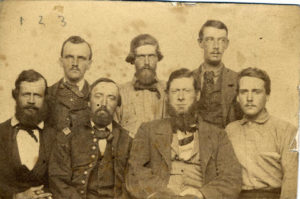
A White Man’s Empire: The United Stated Emigrant Escort Service and Settler Colonialism during the Civil War
It is hard to deny that immigration is one of the most contentious political issues of our time. In the years since the 2016 presidential election, the use of xenophobic and nationalist language to support restricting immigration has become increasingly common, even coming directly from the Oval Office. Critics have ...
Read More
Read More
Labor, Democracy, Law, and International Reconstruction
The three essays posted here relate to a session planned for the June, 2020 meeting of the Society of Civil War Historians. The authors’ abbreviated comments, to be expanded at the rescheduled meeting in 2021, convey tantalizing glimpses of the global scope of America’s post-war Reconstruction. In “Free Labor, Emancipation ...
Read More
Read More
A World “Transfixed”: The International Resonance of American Political Crises during Reconstruction and at Present
The conditions of the global pandemic have made us keenly aware, once again, of the interconnectedness of the world we share. Recent protest movements against systemic racism have radiated from the United States to distant places. Reporting the reactions of people around the world to American events, The New York ...
Read More
Read More
Reconstruction at Sea: The American Campaign to Reform International Neutrality, 1865-1871
The CSS Alabama sank off the coast of France in June 1864. For two years, the Confederate commerce raider had prowled the world’s oceans, capturing and burning dozens of Union merchant vessels. Yet when the Alabama met its end, it left behind more than a devastated U.S. merchant fleet; it ...
Read More
Read More
Free Labor, Emancipation & Reconstruction’s Global Lens
When Charles Hale arrived in Cairo in October 1864, he brought the Civil War with him. The new Consul-General of the United States in Egypt, Hale had made his name as a journalist, and as a politician, having served in the Massachusetts state legislature. A Boston brahmin who came of ...
Read More
Read More

Gettysburg and July 4, 2020: Four Historians Respond
After the gathering of armed militia at Gettysburg National Military Park on July 4, 2020, JCWE editors asked four historians to respond, three of whom have especially intimate connections with the park, one of whom had expressed his outrage to us. Their responses are below in this special Muster post ...
Read More
Read More
Gettysburg National Military Park and July 4, 2020: Personal Reflections
To be surrounded by men and women in festive patriotic attire and jungle fatigues, and holding a range of rifled weaponry was not how I expected my protest to end on July 4th. For much of the day my conversations with members of the Alt Right were uninteresting and largely ...
Read More
Read More
All The Stars Aflame
It is pleasant and sunny on this Ohio morning in mid-July 2020. The temperature is still in the low 70s: a good time for my 8-year old daughter Chloe and me to weed the flower beds in our backyard. “Tell me a story,” she says, as she often does. “About ...
Read More
Read More

Ground Zero: The Gettysburg National Military Park, July 4, 2020
Seven score and seventeen years after the roar of Union artillery and Confederate rifle fire fell silent on the Gettysburg battlegrounds, Adams County endured another invasion. This one, on July 4, 2020, brought a Civil War-sized company of right-wing extremists, some heavily armed, onto the nation’s most hallowed ground in ...
Read More
Read More
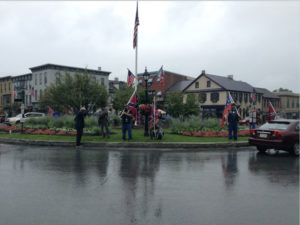
Fear of a Black Planet (Part I)
In 2013, the Confederacy returned to Gettysburg’s battlefield. In 2015, the Confederacy took the town of Gettysburg. In 2016, the Confederacy occupied the Peace Light Memorial on the battlefield. In 2017, the Confederacy pledged allegiance to their flag on the Union side of the battlefield. In 2019, like each November, ...
Read More
Read More
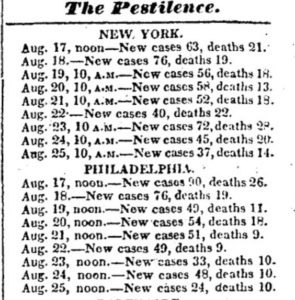
Presidential Politics in a Public Health Crisis: Cholera and the 1832 Election
Over the hubbub of presidential campaigning glided the specter of disease. “A short time since there was an excitement about the election,” reflected a resident of New Orleans in November 1832, “but now we hear nothing but sickness and death.”[1] As modern-day Americans anticipate voting amid a pandemic, some have ...
Read More
Read More
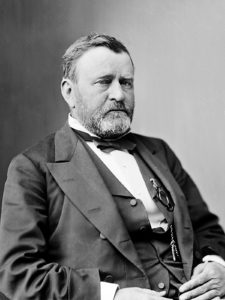
Public Monuments and Ulysses S. Grant’s Contested Legacy
On Memorial Day, three million people watched the first part of a three-episode documentary on the life of General and President Ulysses S. Grant. Three weeks later—on the much-publicized Juneteenth holiday, no less—a statue of Grant in San Francisco was vandalized and toppled. What gives? The motivations for this act ...
Read More
Read More
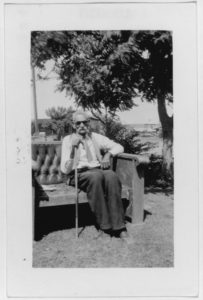
Juneteenth and the Limits of Emancipation
On June 19, 1865, not long after forcing the surrender of Confederate General Edmund Kirby Smith at Galveston, Texas, General Gordon Granger issued General Orders No. 3: “The people of Texas are informed that in accordance with a proclamation from the Executive of the United States, ‘all slaves are free.’” ...
Read More
Read More
Announcing “Race, Politics, and Justice”
Uprisings prompted by recent police killings of Black people, like all incidents of racist violence and anti-racist protest, must be understood in the context of their present moment. People also rightly turn to history to understand how we arrived here. The Civil War Era was a critical moment in the ...
Read More
Read More
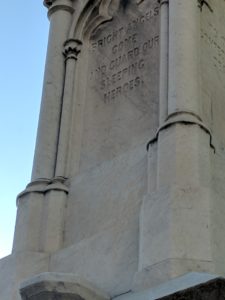
The Even Uglier Truth Behind Athens Confederate Monument
On Sunday, May 31, 2020 protestors gathered at a Black Lives Matter protest around the so-called Athens Monument, a monument to the Confederate dead that has been a flashpoint in Athens, Georgia for decades. The protest was organized by city commissioner Mariah Parker, and the protest included the Athens Anti-Discrimination ...
Read More
Read More
The Limits of Black Forgiveness
Since May 25th, when we lost George Floyd, a whole lot of white folk have been apologizing and asking for forgiveness for the systemic racial injustice that has existed for at least four hundred years. I know a few white allies well. I know they sincerely grieve with us and ...
Read More
Read More